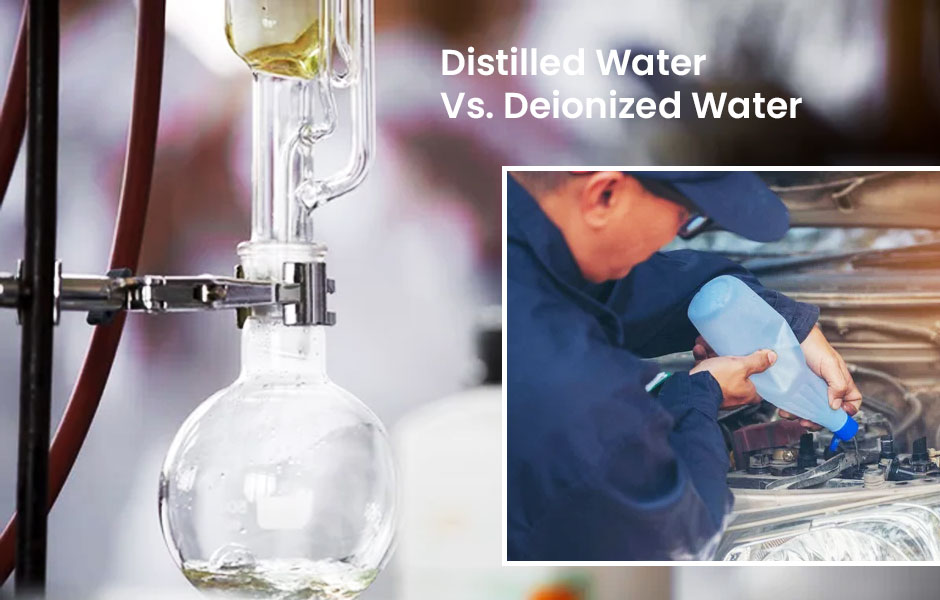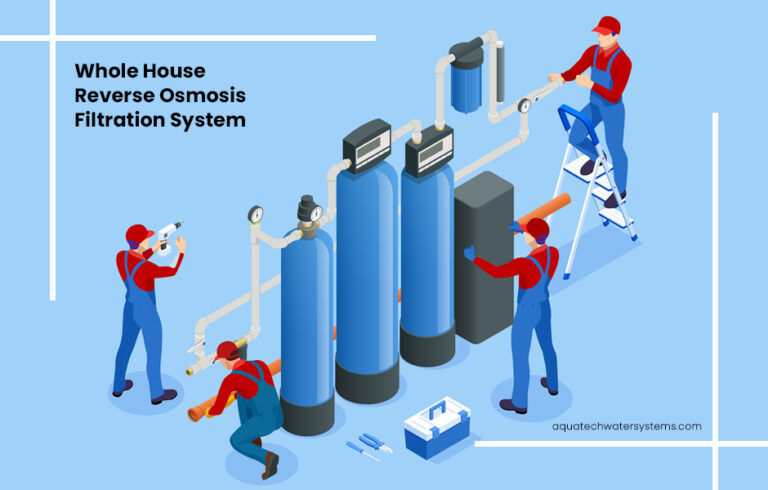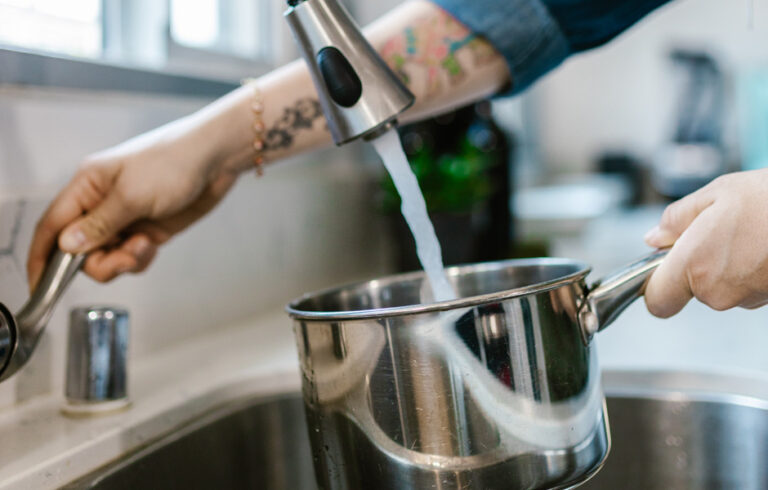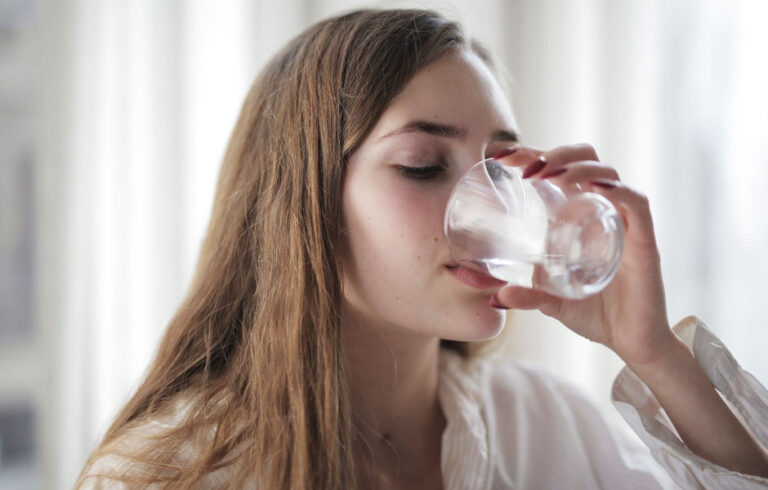Is distilled water the same as deionized water? Are these two types of water the same with just different names out in the market? Which one should I use for drinking? Should I cook with distilled water or deionized water? So many questions in your mind and so few answers to them! Let me help you out with this quick guide about distilled and deionized water.
There are many types of water in the market, and it can be confusing to know which one is right for you. Each one has its unique benefits and drawbacks.
Two of the most popular types are deionized water and distilled water. Both of these types of water are purified, but there are some key distinctions between them. So, what is the difference? Deionized water has had all of its ions removed, while distilled water has had its impurities removed.
In this article, we shall find out the differences and similarities between distilled water and deionized water, where each can be used, the price differences, which one will suit your needs and some of the most commonly asked questions.
Let’s look at each type of water and see which one is best for your needs.
What is distilled water?
Distilled water is water that has been boiled and then condensed back into a liquid. This type of water has had all of its impurities removed, making it extremely pure. This process removes impurities from the water, including minerals and other dissolved solids.
For some people, it can have a bland taste because it lacks the minerals found in other types of water. However, for most people, distilled water is excellent for drinking because it does not have any minerals or chemicals that can give it an unpleasant taste. If you are looking for the highest quality of water possible, distilled water is the way to go.
Distilled water is also a great choice for people looking for purified drinking or cooking water.
Distilled water benefits
There are many benefits of distilled water, including the fact that it is free of contaminants and minerals. Distilled water is also great for sensitive skin, as it will not strip away natural oils like some other types of water can.
Additionally, distilled water has a very low pH level, which makes it ideal for use in skin care products and cosmetics. Distilled water is also incredibly versatile and can be used for everything from cleaning windows to watering plants.
When it comes to your health, consumption of distilled water can help cleanse the body of toxins, boost energy levels, take care of the digestive system and improve skin texture.
An advantage of distilled water being mineral-free is that it does not have the risk of these minerals in water building up over time and causing problems with plumbing fixtures and appliances. Minerals can also cause spots on dishes and glassware, so distilled water can help keep them looking their best.
You might be surprised to know, distilled water is also much cheaper than purchasing bottled water. And, unlike many bottled water, it does not have a funny taste or smell.
Distilled water uses
Since distilled water does not contain any minerals or other contaminants, it is ideal for use in many different applications.
Distilled water is often used in science experiments because it is pure and free of contaminants. Distilled water is also frequently used in medical settings to clean wounds or prepare solutions for intravenous therapy.
Many people use distilled water to fill their car’s battery and other electronic equipment since the lack of minerals prevents corrosion and damage to the sensitive components of these devices.
Distilled water is also used in ironing since it does not leave spots on clothes the way other types of water can. Distilled water is often used in household cleaning for the same reason.
Distilled water is sometimes used in cooking. Since it does not have any impurities, it can help bring out the flavor of food more than regular tap water.
Fun fact: You can even use distilled water to make your homemade snow globe.
How to make distilled water at home?
The process of making distilled water is very simple and only requires a few materials. All you need is two different sizes of clean, empty containers, some water, and a way to heat the water.
- First, you will want to sterilize your containers by boiling it for about ten minutes. You can then place the smaller container inside the bigger container and form a distillation unit. Remember, you must fill the bigger container with water, and the smaller container must be left empty.
- Next, take a lid with a handle on top and place it upside down to cover the main container.
- Then, boil your water in the distillation unit. The steam will rise, condense back into the water, and get collected in the smaller container, free of all impurities or contaminants as the water starts boiling.
You can then use this distilled water for various purposes.
Is it safe to drink distilled water?
Yes, distilled water is safe to drink. The distillation process removes impurities from water, making it purer than other types of water. However, some people believe that distilled water is not as healthy as other types of water because it does not contain any minerals.
While it is true that distilled water does not contain any minerals, this does not mean that it is not healthy to drink. Many experts believe that distilled water is better for you than tap water because it does not contain any harmful chemicals or pollutants.
Distilled water is ideal for those who are looking to avoid consuming these substances. Additionally, distilled water has a longer shelf life than other types of water since it does not contain any organic matter that can spoil over time. Distilled water is the purest form of water you can find.
Distilled water drinking side effects
Distilled water is water that has had all of its impurities removed through distillation. This means that distilled water is essentially just pure H20. It’s so pure that it can leach minerals from your body if you drink too much of it.
That’s why it’s important to only drink distilled water in moderation and make sure you’re getting enough minerals from other sources.
There are other potential side effects of drinking distilled water. Some people may experience headaches or dizziness, which can also lead to dehydration if you’re not careful.
It is essential to drink plenty of other fluids along with distilled water and to avoid distilled water if you’re already dehydrated.
Other important facts about distilled water
pH in distilled water
Distilled water is neutral with a ph level of around 7, making it ideal for consumption. It’s also safe to use in cooking, baking, cleaning wounds, and scientific experiments.
However, when making distilled water at home, your distilled water can be acidic if not done correctly. This is because the distillation process removes all of the natural alkalinity from the water.
If you are going to be drinking homemade distilled water regularly, it is a good idea to add a pinch of baking soda to each glass to help neutralize the water.
Distilled water and kidneys
Most people are concerned about their kidneys before regularly using distilled water at home. But, for all of you concerned lot, distilled water does not affect the kidneys.
Distilled water is often recommended for people with kidney disorders because it helps to prevent dehydration. Dehydration can be a severe problem for people with kidney disorders and lead to other health problems. Distilled water can also help to cleanse the body of toxins and impurities.
What is deionized water?
Deionized water is a type of purified water that has been stripped of all of its ions. This means that it is free of minerals, salts, and other impurities. The contaminants that often make people sick on consumption are taken out of the water by putting it through a magnet, which pulls them out.
Also, deionization is a process that uses ion exchange resins to remove ions from the water, such as calcium, sodium, and potassium. This results in water that is 99.9% free of contaminants. Deionized water is sometimes used as a drinking water source, although it is not as popular as distilled water.
Deionized water benefits
There are a few key benefits of deionized water that make it a popular choice for many different applications.
Deionized water is safe to drink and use for cooking without the chance of getting sick because it does not have any chemicals in it.
Deionized water is non-toxic and is a good choice for those who want to reduce their exposure to harmful contaminants. It does not leave any residue behind, making it ideal for cleaning and sterilization. It also has a higher boiling point than regular tap water, making it better suited for high-temperature applications.
Overall, deionized water is a good option for those who are looking for an affordable and effective way to purify their water.
Deionized water uses
- Deionized water is often used in laboratories and hospitals because it is a safe and reliable way to clean equipment and instruments.
- It can also be used in car washes, as a coolant in machinery, and in many other industrial applications.
- Deionized water is popular among homebrewers as it is a great way to produce pure, contaminant-free liquor.
- DI water can also be used for cooking, drinking, cleaning, and agriculture.
Deionized water formula: How to deionized water at home?
Making deionized water at home is relatively easy. A deionization filter is the most important thing to have at hand if you intend to make your own deionized water. The DI filter uses ion exchange to remove minerals and ions from water.
- First, fill a pot with water and place it on the stove. Turn the heat up to high and wait for the water to come to a boil.
- Once the water reaches a boil, reduce the heat to medium and let it simmer for a few minutes. Then, turn off the heat and let the pot cool down completely.
- Once the water has cooled, pour it into a deionization filter pitcher or any other type of pitcher with a deionization filter. Your deionized water is ready.
- Pour the deionized water into a storage container and seal it securely. Please place it in the refrigerator to cool and enjoy your freshly filtered deionized water.
Is it safe to drink deionized water?
Yes, deionized water is safe to drink. Deionization is a process that removes ions from the water, which means that it removes any contaminants that could make people sick.
Though some other forms of water can prove more beneficial for health due to the essential minerals they contain, deionized water is safe and reliable as it eliminates the harmful contaminants from the water.
One effective way to enhance the benefits of drinking deionized water is to remineralize it.
Side effects of deionized water:
While deionized water is safe to drink, there are some potential side effects that you should be aware of before using it.
- Deionization of water can remove important minerals from the water, leading to health problems if consumed over a long period.
- Additionally, deionized water has a higher boiling point than distilled water, which means it can cause burns more easily.
- Another potential side effect of using deionized water is that it can strip away natural oils from the skin. This can lead to dryness and irritation. If you have sensitive skin, deionized water may not be the best choice for you.
Deionized water vs. distilled water: What is eliminated?
When it comes to differentiating between distilled water and deionized water, it is important to understand what each type of water eliminates.
There are a few key differences between distilled and deionized water that you should be aware of before making your decision.
- For one, distilled water is completely free of minerals and ions, while deionized water still contains some traces of these elements.
- This means that distilled water is more effective at removing contaminants from surfaces than deionized water.
- Additionally, distilled water has a higher boiling point than deionized water, making it better suited for use in high-temperature applications such as sterilization.
Ultimately, the choice between distilled and deionized water depends on your specific needs.
What is eliminated in deionized water?
All the mineral ions, including both cations and anions, are removed in the deionization process. These cations and anions are copper, calcium, sodium, iron, sulfate, and chloride, to name a few.
What is eliminated in distilled water?
The distillation process effectively removes organic and inorganic compounds such as bacteria, viruses, nitrate, lead, mercury, arsenic, calcium, magnesium, phosphorus, etc.
Now that you know the difference between these two types of water, you can decide which one is right for you. If you need purified water for drinking or cooking, distilled water is your best bet.
Similarities between distilled water and deionized water
Both distilled water and deionized water are free of minerals, ions, and contaminants. They both tend to remove all ions and pollutants from the water be beneficial or harmful to the health. They are both used in the kitchen, medical centers, laboratories, and electronics.
Cost differences between distilled water and deionized water
The costs of distilled water and deionized water can vary depending on several factors, such as the quality of the water and the amount you need. However, in general, distilled water is more expensive than deionized water.
This is because it takes more time and energy to produce distilled water, and it also requires special equipment that not all companies have. If you are looking for a more affordable option, deionized water may be a better choice for you.
Reverse osmosis as an option
Reverse osmosis (RO) is a filtration system that adds the minerals removed by both distilled and deionized water back into the water.

This makes RO-filtered water an excellent option for those who want all the benefits of distilled and deionized water without the downside of stripped away minerals.
This is done by adding a remineralization cartridge to the system, which also improves the taste of the water, making it healthier to drink.
Since RO systems can be expensive to purchase and maintain, you might want to consider the monthly subscription option from a water filtration company. This way, you can get all the benefits of an RO system without the upfront purchase and maintenance cost.
Reverse osmosis systems usually have a longer lifespan than distilled and deionized water systems, so you can save money in the long run by renting an RO system instead of buying one outright.
Also read: Difference between RO water and Mineral Water
FAQs
Can distilled water kill you?
This is a common question that we get asked, and the answer is no. Distilled water will not kill you.
Does distilled water dehydrate you?
Unregulated or prolonged use of distilled water can lead to a lack of essential nutrients in the body and cause dehydration.
Can deionized water kill you?
No, deionized water does not kill you. While deionized water still contains some traces of minerals, ions, and contaminants, it is not harmful to drink. In fact, deionized water is often used for drinking and cooking purposes.
How long does distilled water last?
When stored properly, commercially produced distilled water can last up to a few years. Whereas homemade distilled water will last you around seven to ten days.
Does distilled water have chlorine?
Distilled water is the purest form of water there is. The distillation process removes ions and contaminants from the regular water, thus making distilled water chlorine-free.
Can I use distilling water for plants?
Distilled water is largely used for agricultural and irrigational purposes. This proves that it is beneficial to water your house plants with distilled water as well.
Can I cook with distilled water?
The absence of pollutants and harmful contaminants makes cooking with distilled water ideal.
Is reverse osmosis the same as distilled water or deionized water?
When it comes to including RO water in the discussion, one thing that can not be denied is that RO water, having undergone a far superior process of reverse osmosis, is always the most preferred option for prolonged use. RO water does not have the side effects of distilled water and deionized water.
Can I cook with deionized water?
Deionized water is free of minerals and is an excellent choice for cooking as it absorbs the nutrients and minerals from food sources better than tap water or bottled water.
What is demineralized water?
Distilled water, deionized water, and reverse osmosis water all come under this category as any water that has been purified and stripped off of all its minerals and ions is known as demineralized water.
Is demineralized water the same as distilled water?
Let us understand this the old school way. All distilled water is demineralized water, but all demineralized water is not distilled water. that means distilled water is a kind of demineralized water, and there can be other forms of demineralized water suitable for use.
Is distilled water the same as boiled water?
No, distilled water is not the same as boiled water. After reaching a boiling point, boiled water remains the regular water, with all the contaminants and ions intact with only an increased temperature. However, distilled water is the water that is condensed after the boiling water entirely vaporizes, making it free of all impurities.
This article was originally published in Apr-2022 and was last updated in Apr-2022
Author: Donna J H
Category: Drinking Water




